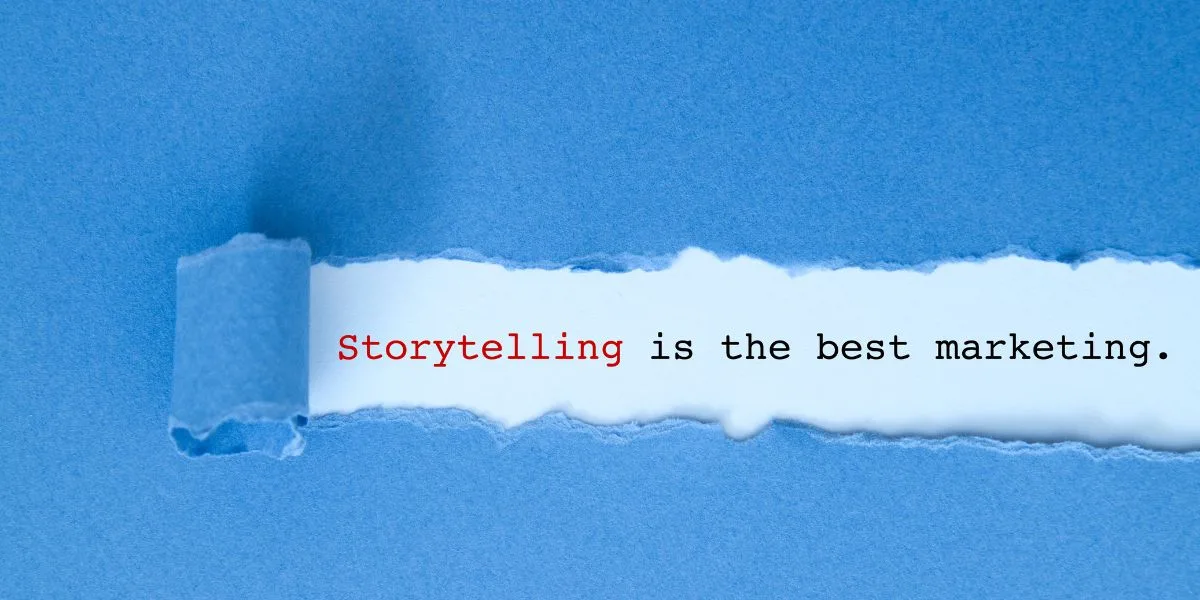Listen to this Article
In today’s competitive marketplace, small businesses face the challenge of using multichannel marketing so they can effectively stand out in a crowded field. Consumers are bombarded with options, both online and offline, so how do you ensure they choose your business? The answer lies in one of the most valuable assets your company can have: your brand.
Your brand is more than just a logo or a catchy slogan. It’s the story behind your business, the experience customers associate with your products or services, and the values you stand for. Building a strong brand can set your business apart, create trust, and foster long-term relationships with customers. However, brand awareness—the extent to which people are familiar with your brand—plays an equally vital role. Without awareness, even the most thoughtfully crafted brand might go unnoticed.
In this blog post, we’ll explore why branding and brand awareness are so crucial for small business owners. From creating a lasting impression to boosting customer loyalty, we’ll dive deep into how these elements contribute to business success. Whether you’re launching a new venture or looking to grow an existing one, understanding the power of branding can help you build a stronger, more sustainable business.
What Is a Brand?
At its core, a brand is how your business is perceived by others. It’s the sum total of a customer’s experiences, interactions, and emotions related to your company. When people think of your business, what comes to mind? Is it the quality of your products, the friendliness of your customer service, or the reliability of your solutions?
A successful brand encompasses:
- Visual Identity: Your logo, colors, typography, and design all contribute to the visual image of your brand. This is often the first impression people have of your business.
- Voice and Messaging: The tone, language, and personality in your marketing materials, website, and social media posts create your brand voice. Are you professional, playful, approachable, or authoritative?
- Values and Mission: What does your business stand for? Consumers today are more likely to engage with brands that share their values. Whether it’s sustainability, community involvement, or innovation, your mission helps define your brand.

Why Is Branding Important for Small Businesses?
You might think branding is something only large corporations need to worry about. After all, they have the resources for flashy logos, ad campaigns, and celebrity endorsements. However, branding is just as important—if not more so—for small businesses. Here’s why:
Branding Builds Recognition
For small businesses, branding is your identity in a marketplace filled with bigger competitors. A strong brand helps your business stand out and makes it easier for people to recognize you. When consumers see your logo or hear your business name, they should immediately connect it with the positive experiences they’ve had with your company.
Think of companies like Apple or Nike. Their logos alone instantly bring to mind their products and what they stand for—innovation and performance. While small businesses don’t have the same reach, developing a recognizable brand in your community or niche is just as valuable. When customers know who you are, they’re more likely to choose your business over a competitor.
Branding Establishes Trust
Trust is essential to the success of any business, and branding plays a critical role in building that trust. A well-developed brand presents a consistent, reliable image that helps consumers feel confident in choosing your products or services.
Small businesses, in particular, need to work hard to establish credibility. A professional, well-crafted brand can signal to customers that you’re an established, trustworthy business that takes its services and customers seriously. Consistency in your messaging, customer interactions, and overall brand experience fosters trust over time.
Branding Differentiates Your Business
In a sea of competitors offering similar products or services, what makes your business different? This is where branding becomes a powerful tool. Your brand helps tell the story of what makes your business unique—whether it’s your approach to customer service, the quality of your offerings, or the values you hold.
For example, two law firms might specialize in family law, but one may brand itself as a compassionate advocate for families, focusing on personalized support during difficult times, while the other emphasizes its extensive experience and successful track record in court. Both firms offer similar legal services, but their brands tell very different stories. For lawyers, your brand is how you differentiate yourself in a competitive marketplace.
Branding Increases Customer Loyalty
A strong brand creates an emotional connection with your customers, making them more likely to return to your business. When people identify with your brand’s values and the experience you provide, they become loyal supporters. This loyalty can translate into repeat business, referrals, and positive word-of-mouth recommendations.
For small business owners, customer loyalty is often the difference between surviving and thriving. It’s more expensive to acquire new customers than to retain existing ones, so cultivating a strong brand that fosters loyalty can lead to long-term growth.

What Is Brand Awareness?
While branding is about shaping your identity, brand awareness is about ensuring people know who you are. It’s the level of familiarity and recognition that consumers have with your brand. If people haven’t heard of your business or can’t recall your brand name, it’s much harder to earn their trust or drive sales.
Brand awareness is often the first step in the customer journey. Before someone decides to purchase from you, they need to know you exist. For small businesses, building brand awareness may seem challenging, but it’s essential for gaining new customers and expanding your reach.
Why Is Brand Awareness Important?
Brand Awareness Drives New Customers
People can’t buy from you if they don’t know you exist. Building brand awareness ensures that more people in your target audience are familiar with your business. The more often someone is exposed to your brand, the more likely they are to consider purchasing from you when the need arises.
For example, if a customer is searching for a local Medicare agency, they’re more likely to choose one they’ve heard of before or seen advertised in their community. Familiarity creates a sense of trust, which can significantly influence their decision-making process. Brand awareness ensures that your agency remains top-of-mind when potential clients are ready to select a Medicare plan or provider.
Brand Awareness Creates Competitive Advantage
Small businesses often compete against larger, more established brands that have bigger marketing budgets. However, brand awareness can help level the playing field. By creating memorable experiences, engaging with your community, and building relationships with customers, you can increase your visibility and stand out in your niche.
Even with a limited budget, small businesses can boost brand awareness through consistent marketing efforts such as social media, local events, email marketing, and partnerships with other businesses. The key is persistence and creativity in getting your brand in front of your target audience.
Brand Awareness Encourages Word of Mouth
Brand awareness isn’t just about getting people to recognize your logo or business name—it’s about creating a lasting impression. When customers have a positive experience with your brand, they’re more likely to tell others about it. Word-of-mouth referrals are one of the most powerful forms of marketing, especially for small businesses.
The more familiar people are with your brand, the more likely they are to recommend you to their friends, family, or social media followers. Brand awareness helps turn satisfied customers into brand advocates who spread the word about your business.
Brand Awareness Builds Brand Equity
Brand equity refers to the value your brand holds in the eyes of your customers. Strong brand equity means people perceive your business as valuable, trustworthy, and worth paying for. Brand awareness is a key component of building this equity.
The more people recognize and have positive associations with your brand, the more valuable your brand becomes. This equity not only helps you generate more sales but can also make your business more attractive to potential investors or partners down the road.

How to Build Brand Awareness for Your Small Business
Now that we’ve covered the importance of branding and brand awareness, how can you start building them for your small business? Here are some actionable steps to get started:
1. Host Seminars and Webinars
Hosting seminars and webinars can significantly boost your brand awareness. These events allow you to showcase your expertise, connect with your audience, and build relationships. Promote these events through your website and social media, and consider using email marketing and SEM to reach a broader audience. Offering valuable insights and information during these sessions can position your brand as a trusted authority in your industry.
2. Search Engine Marketing (SEM)
Utilizing search engine marketing is essential for increasing your brand’s visibility online. By running targeted ads on search engines, you can attract potential customers searching for products or services related to your business.
3. Leverage Social Media
Social media platforms provide an affordable way for small businesses to reach new audiences and build brand awareness. By consistently sharing engaging content, interacting with followers, and showcasing your brand’s personality, you can create a stronger connection with your audience.
4. Partner with Other Businesses
Collaborating with complementary local businesses can help you reach new customers who might not be familiar with your brand. For example, a financial advisor might partner with a local accountant or estate planning attorney for a joint event, allowing each professional to tap into the other’s client base. Consider co-hosting seminars or webinars with these partners to provide even more value to attendees while expanding your reach and building trust with potential clients.
5. Participate in Community Events
Getting involved in local events—whether by sponsoring, hosting, or participating—helps increase your brand’s visibility within your community. This can be especially valuable for small businesses that rely on local customers. Look for opportunities to set up a booth at local fairs, participate in charity events, or organize your own community seminar or webinar to showcase your offerings and connect with potential customers.
6. Offer Promotions and Incentives
People are more likely to try out a new business if there’s a compelling offer or incentive. Offering limited-time promotions, discounts, or referral programs can encourage customers to check out your business and spread the word to others.
7. Focus on Customer Experience
At the end of the day, building brand awareness and loyalty comes down to the experience you provide. Ensure that every interaction—whether online or in person—reflects the values of your brand and leaves a positive impression. Happy customers will not only return but will also help you grow your brand through recommendations and reviews.
Conclusion
For small business owners, investing in branding and brand awareness is essential for long-term success. A strong brand helps you stand out, establish trust, and foster customer loyalty. Brand awareness ensures that more people are familiar with your business, driving growth and setting the stage for future success.
Whether you’re just starting or looking to enhance your brand’s presence, focusing on building both your brand and brand awareness can help you thrive in today’s competitive market. By leveraging social media, hosting seminars and webinars, utilizing search engine marketing, and engaging in community events, you can effectively boost your brand’s visibility and credibility, ultimately leading to greater success for your small business.










